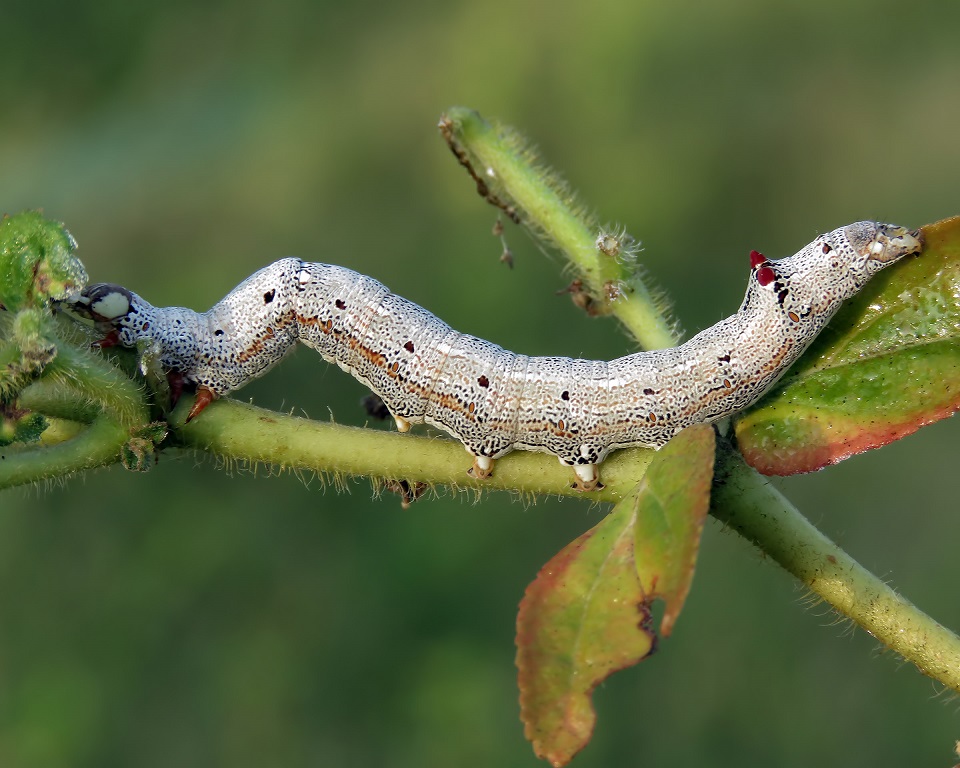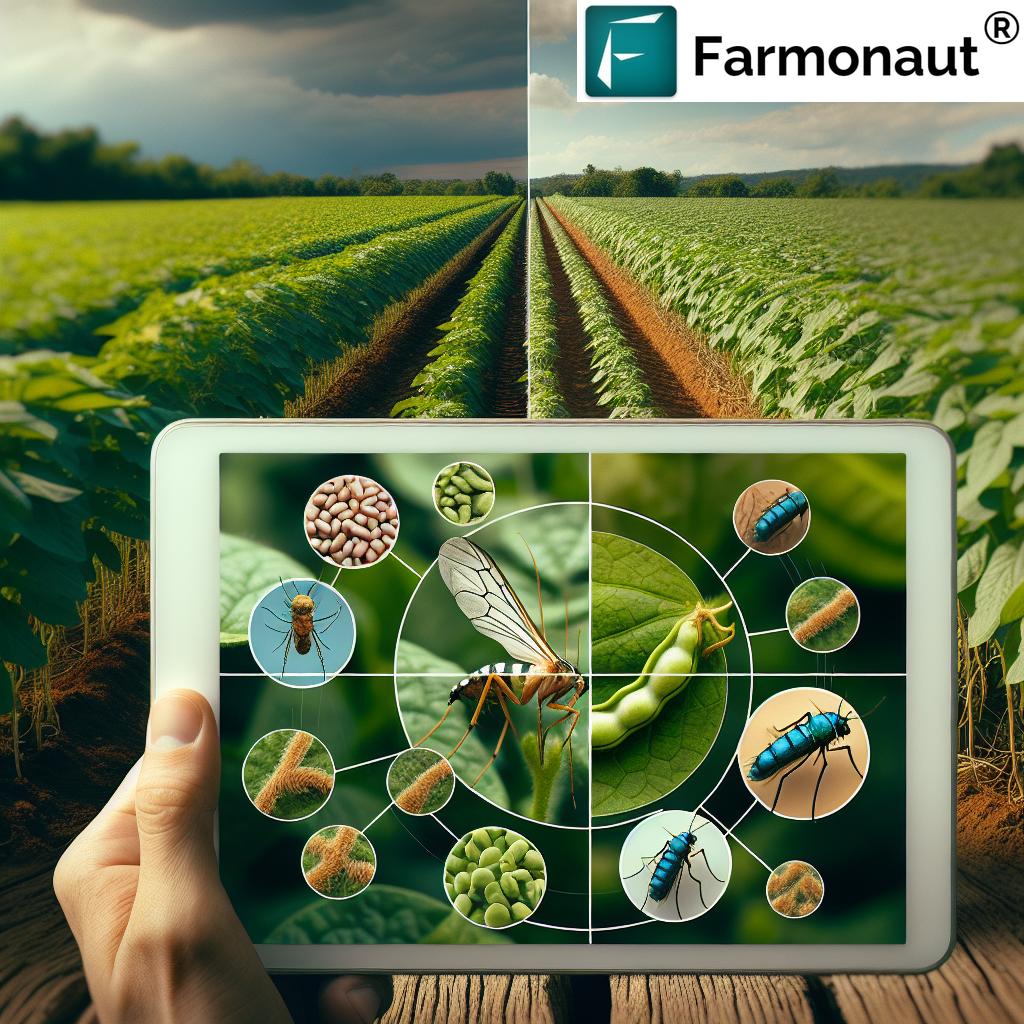Environmental Benefits of Sustainable Agriculture 2025: How Eco-Friendly Farming Practices Secure Our Planet’s Future
“”Sustainable agriculture can reduce water usage by up to 60% compared to conventional farming methods.””
Introduction
In recent years, the urgency to rethink agriculture has emerged due to the challenges posed by conventional farming. As the global population continues to grow and climate change intensifies, the need for farming systems that offer a balance between productivity and ecological stewardship has never been greater. Solutions such as sustainable agriculture, precision agriculture, and urban farming are at the forefront, encompassing revolutionary methods and technologies. These approaches are not just addressing food security and rural communities’ resilience but are actively improving the environmental health of our planet for 2025 and beyond.
In this comprehensive guide, we will explore in detail the environmental benefits of sustainable agriculture, with a particular focus on soil, water conservation, and biodiversity. We will also explain how advanced technologies, such as those offered by Farmonaut and other precision solutions, can further enhance these environmental benefits.
For readers interested in monitoring and reducing farm-related emissions, Farmonaut’s Carbon Footprinting tools empower users to track, analyze, and manage carbon emissions with satellite data. This supports sustainable agriculture environmental benefits and regulatory compliance.
Understanding Sustainable Agriculture: A Vital Approach for 2025
Sustainable agriculture is an approach that seeks to produce abundant, healthy food while minimizing negative impacts on the environmental and ensuring resource conservation for future generations. Unlike conventional, intensive systems—often characterized by heavy chemical inputs, excessive tilling, and monoculture practices—sustainable agriculture prioritizes soil health, biodiversity, and water conservation.
Key elements include:
- Cropping diversification and rotation
- Use of cover crops and organic amendments
- Integrated pest management and reduced chemical inputs
- Conservation tillage and minimization of soil disturbance
- Precision technologies for resource application
As we look towards 2025 and beyond, the widespread adoption of these practices is crucial for addressing fundamental environmental challenges, protecting natural resources, and fostering long-term resilience in food production systems.
Integrating real-time data can significantly strengthen sustainability outcomes. Farmonaut’s Large Scale Farm Management platform allows for superior monitoring and management of sustainable practices at scale, maximizing environmental benefits while maintaining productivity.
If you’re a developer or want to automate sustainability tracking, explore the Farmonaut API and Developer Docs.
Unveiling the Environmental Benefits of Sustainable Agriculture
How does sustainable agriculture benefit the environment? The environmental benefits of sustainable agriculture are profound, diverse, and interconnected. The key areas of positive impact include:
- Enhanced soil health and fertility
- Water conservation and pollution reduction
- Promotion and preservation of biodiversity
- Climate change mitigation through carbon sequestration
- Improved land use efficiency and ecosystem resilience
As we delve deeper into each benefit, we will examine how sustainable practices, alongside innovations in precision agriculture and urban farming, address environmental challenges and promote a balanced, eco-friendly approach to food production.
Improved Soil Health: Foundation of Resilient Agriculture
Soil is the bedrock of agriculture, underpinning both productivity and environmental health. Unfortunately, traditional intensive farming often leads to soil degradation, erosion, and loss of fertility due to excessive tilling, heavy synthetic fertilizer use, and monoculture cropping. These issues threaten both food security and the ecosystems that depend on healthy soils.
Sustainable agricultural methods directly address soil health:
- Crop rotation and diversification disrupt pest and disease cycles and reduce nutrient depletion.
- Cover cropping increases organic matter, reduces erosion, and improves soil structure for long-term fertility.
- Organic amendments (e.g., compost) replenish soil nutrients and support beneficial soil organisms.
- Reduced tillage practices preserve soil structure and minimize carbon loss.
- Enhancement of Soil Carbon: Sustainable agriculture helps sequester carbon dioxide in the soil, mitigating climate change impacts and boosting soil fertility and structure.
- Reduction of Erosion: By maintaining ground cover and minimizing disturbance, these systems dramatically reduce erosion—a key issue in conventional farming.
Increasing soil organic matter by ~15% is possible through sustainable practices, offering improved yield stability and water retention.
Unlocking Soil Secrets: Carbon Sequestration in Sustainable Agriculture
The environmental benefits of sustainable agriculture include its vital role in capturing and storing atmospheric carbon (CO2) in soil organic matter. This process, known as carbon sequestration, mitigates climate change by removing greenhouse gases from the atmosphere. Techniques such as low- or no-till farming, the addition of organic compost, and the use of perennial crops can lock in carbon and significantly improve soil resilience.
Boosting soil health through carbon-focused practices enhances water retention, supports biodiversity, and underpins sustainable food systems.
“”Precision agriculture increases crop yield by 15% while improving soil biodiversity and conservation practices.””
Water Conservation and Pollution Reduction in Sustainable Agriculture
Water is a vital resource for agriculture, but traditional farming often entails inefficient use, over-extraction, and significant water pollution from chemical runoff. With agriculture accounting for approximately 70% of global freshwater withdrawals, unsustainable water practices threaten the health of aquatic ecosystems and human communities.
Sustainable agriculture environmental benefits in water management include:
- Minimized use of synthetic fertilizers and pesticides, lowering harmful runoff into groundwater and surface waters.
- Efficient irrigation methods (e.g., drip and precision-based irrigation) to reduce waste by delivering water directly to crop roots.
- Adoption of rainwater harvesting and storage systems to capture and store rainfall for use during dry periods.
- Improved soil structure from sustainable practices, enhancing water infiltration and retention.
By implementing these methods, sustainable agriculture can reduce water use by up to 60% compared to conventional approaches—a statistic vital in regions facing increasing freshwater scarcity due to climate change.
By reducing runoff and improving water efficiency, the environmental benefits of sustainable agriculture extend far beyond the farm—helping stabilize water supplies, protect aquatic ecosystems, and ensure food production remains viable as the climate shifts.
Enhancing Biodiversity: A Key Environmental Benefit
Biodiversity is the variety of living organisms within ecosystems and is essential for ecosystem resilience, pest management, and long-term productivity in agriculture. Unfortunately, monoculture systems and high chemical inputs have reduced biodiversity within traditional farms.
Sustainable agriculture environmental benefits in biodiversity include:
- Establishing crop rotation, intercropping, and agroforestry systems that provide diverse habitats for beneficial insects and birds.
- Lowering pesticide use, which helps natural pest predators thrive and supports pollinator populations.
- Preserving hedgerows, riparian buffers, and non-crop habitats within and alongside cultivated land.
A diversified farm landscape:
- Increases local biodiversity by up to 25%
- Enhances ecosystem services such as pollination, natural pest control, and soil fertility
- Bolsters crop resilience to climate and pest disruptions
Enhancing and preserving biodiversity is a cornerstone of sustainable agriculture—and is also a direct answer to how sustainable agriculture benefits the environment by maintaining a healthy, functioning ecosystem.
Traceability not only improves food safety but also supports biodiversity-friendly sourcing. With Farmonaut’s Blockchain-Based Product Traceability, supply chain transparency enables ecologically minded sourcing—a crucial element in promoting sustainable and ethical agriculture globally.
Climate Change Mitigation: Greenhouse Gas Reduction and Carbon Farming
One of the most significant environmental benefits of sustainable agriculture is its ability to reduce greenhouse gas emissions and increase carbon storage.
- Minimized tillage, permanent ground cover, and addition of organic matter store more carbon in soils, offsetting emissions.
- Reduced chemical fertilizer and pesticide applications decrease emissions associated with input production and use.
- Improved livestock/grazing management reduces methane output.
Carbon farming—an approach combining best practices for sequestration and emissions reduction—is gaining traction globally as a measurable, market-driven path to climate resilience for 2025.
By pursuing carbon farming, sustainable agriculture can become a net sink rather than a source of greenhouse gases, playing a transformative role in meeting international climate goals.
Environmental Benefits of Precision Agriculture: Data-Driven Stewardship
Precision agriculture is a technology-driven subset of sustainable farming dedicated to maximizing environmental benefits through data and automation. By utilizing tools such as GPS-guided vehicles, remote sensing, sensors, and satellite imagery (like that offered through Farmonaut’s platform), farmers can:
- Apply water, fertilizers, and pesticides only where needed, minimizing environmental waste.
- Track and reduce chemical input usage, leading to lower runoff and nutrient leaching.
- Decrease greenhouse gas emissions by optimizing field activities and resource use.
- Preserve non-crop habitats within farmland, supporting biodiversity.
Environmental benefits of precision agriculture include:
- 15% higher crop yields with reduced input volumes.
- Up to 30% decrease in water usage through targeted irrigation.
- Improved soil biodiversity as a result of fewer disruptive applications.
- Direct contribution to global sustainability goals.
For real-time, field-level sustainability monitoring, Farmonaut’s Jeevn AI Advisory System offers up-to-date analysis, issue alerts, and actionable recommendations—maximizing both productivity and environmental benefits through precision technology.
Environmental Benefits of Urban Farming: Green Cities, Local Food
As more of the world’s population shifts to urban areas, urban farming is gaining prominence for its unique environmental benefits and potential to boost food security locally. This subset of sustainable agriculture brings green space into the heart of cities and offers myriad ecosystem services:
- Promotes local food production, reducing food miles and transport-related carbon emissions.
- Creates green infrastructure (vertical farms, rooftop gardens, community plots) mitigating urban heat island effects.
- Improves air quality and provides habitats for urban biodiversity including pollinators and birds.
- Recycles organic waste into compost, reducing landfill use and providing nutrient-rich amendments for urban soil.
Environmental benefits of urban farming are especially crucial for 2025 and beyond as cities seek to increase local food resilience, reduce ecological footprints, and provide healthier living spaces.
Comparative Table: Environmental Benefits of Sustainable, Precision, and Urban Farming
To illustrate the spectrum of eco-friendly agriculture, here’s a comparative summary table of the environmental benefits provided by sustainable agriculture, precision agriculture, and urban farming across key categories.
| Environmental Benefit | Sustainable Agriculture | Precision Agriculture | Urban Farming |
|---|---|---|---|
| Improved Soil Health | Improves soil organic matter by ~15%, reduces erosion | Enhances soil nutrient balance; conservation tillage through targeted machinery | Remediates urban soils with compost; prevents contamination |
| Water Conservation | Reduces water use by up to 60% vs. conventional | Reduces water use by up to 30% via precision irrigation | Water recycling and high-efficiency hydroponics reduce city water demand |
| Biodiversity Enhancement | Increases on-farm biodiversity by 25% | Maintains non-crop habitats; supports pollinator zones | Creates new urban habitats; supports pollinators and birds |
| Greenhouse Gas Reduction | Boosts soil carbon storage; cuts fertilizer-linked emissions | Reduces field operations and input waste; targeted emissions tracking | Decreases transport emissions; lowers urban carbon footprint |
| Land Use Efficiency | Multiple cropping/rotation maximizes yield per hectare | Optimizes land through spatial analytics; prevents overuse | Vertical, rooftop, and stacked systems multiply land productivity |
Integrated Systems: Agroforestry & Landscape Resilience
A holistic approach to sustainable agriculture includes agroforestry systems, which blend the cultivation of trees with crops or livestock. This integration:
- Enhances ecosystem resilience by providing natural windbreaks, improving microclimates, and increasing landscape diversity.
- Stabilizes soils, preventing erosion and supporting healthy riparian zones.
- Sequesters atmospheric carbon, contributing to climate mitigation goals.
- Provides wildlife corridors, supporting ecological balance.
As more farmers look to diversify production and increase resilience to weather extremes and pest outbreaks, the adoption of integrated, multifunctional systems will increase, offering even broader environmental benefits for 2025 and beyond.
How Farmonaut Empowers Environmental Benefits of Sustainable Agriculture
At Farmonaut, we recognize that scalable, data-driven technology is key to advancing the environmental benefits of sustainable agriculture, precision farming, and urban food systems.
Farmonaut’s Solutions at a Glance
- Satellite-Based Monitoring & Real-Time Insights: Our satellite and AI-powered platform supports field-level decisions related to crop health, soil moisture, and landscape management. By enabling sustainable practices, we help users optimize input use (fertilizers, water, and pesticides), improving efficiency and reducing environmental impact.
- Jeevn AI Advisory: Farmonaut’s Jeevn AI system delivers timely recommendations for irrigation, pest management, and soil amendments for both rural and urban contexts—empowering users to maintain ecological balance and resource conservation.
- Blockchain Traceability: Our supply chain transparency solution ensures that sustainable sourcing and eco-friendly practices are verifiable at every stage, reinforcing accountability and consumer trust.
- Carbon Footprinting and Environmental Tracking: With actionable data, users can monitor, compare, and reduce emissions—contributing to broader greenhouse gas reduction targets.
- Fleet and Resource Management: Optimize logistics for agricultural operations, reducing fuel use and environmental waste. Learn more about sustainable logistics with Farmonaut Fleet Management.
- Accessible, Affordable Solutions: Our platform (web, Android, iOS, or API) enables small and large-scale users to benefit from sustainable insights and resource optimization.
- Financial Services Support: Enable access to crop loans and insurance with real-time, satellite-based farm verification. Explore Crop Loan and Insurance to encourage climate-resilient, eco-friendly farming.
Frequently Asked Questions (FAQ)
-
Q: How does sustainable agriculture benefit the environment?
Sustainable agriculture benefits the environment by improving soil health, conserving water, reducing harmful chemical runoff, boosting biodiversity, and mitigating greenhouse gas emissions through carbon sequestration. It ensures long-term productivity and resilience in food systems.
-
Q: What are the main environmental benefits of precision agriculture?
Precision agriculture improves resource use efficiency, reduces chemical and water inputs, cuts greenhouse gas emissions, and better preserves non-crop habitats. It leverages real-time data to optimize every aspect of farm management for sustainability.
-
Q: What impact does urban farming have on environmental sustainability?
Urban farming supports local food production, reduces carbon from food transportation, introduces green spaces that lower city heat and improve air quality, recycles organic waste, and increases city-level biodiversity.
-
Q: Is high-yield agriculture compatible with sustainability?
Yes. By integrating practices like crop rotation, precision technology, and organic amendments, farmers can achieve both high yields and profound environmental benefits for soil, water, and ecosystem health.
-
Q: How can I implement these eco-friendly practices on my farm?
Begin by diversifying your crop rotation, reducing chemical inputs, improving irrigation efficiency, and leveraging agricultural tech platforms like Farmonaut for tailored insights and monitoring.
Conclusion: Charting an Eco-Friendly Course for 2025 and Beyond
The transition to sustainable agriculture and precision practices is not just an industry trend—it’s an ecological necessity. By enhancing soil health, conserving water, reducing chemical use, promoting biodiversity, and mitigating climate change, these systems offer environmental benefits crucial for the stability and resilience of our food supply and planet’s natural systems.
As 2025 approaches, embracing environmental stewardship in agriculture will ensure healthier rural communities, thriving ecosystems, and robust food security. With the right tools—from on-the-ground best practices to satellite and AI-driven insights—farmers, businesses, and governments can work together to secure the environmental future of agriculture worldwide.
Let us collectively advance environmental benefits through sustainable agriculture, precision farming, and smart urban agriculture for a greener, resilient tomorrow.










